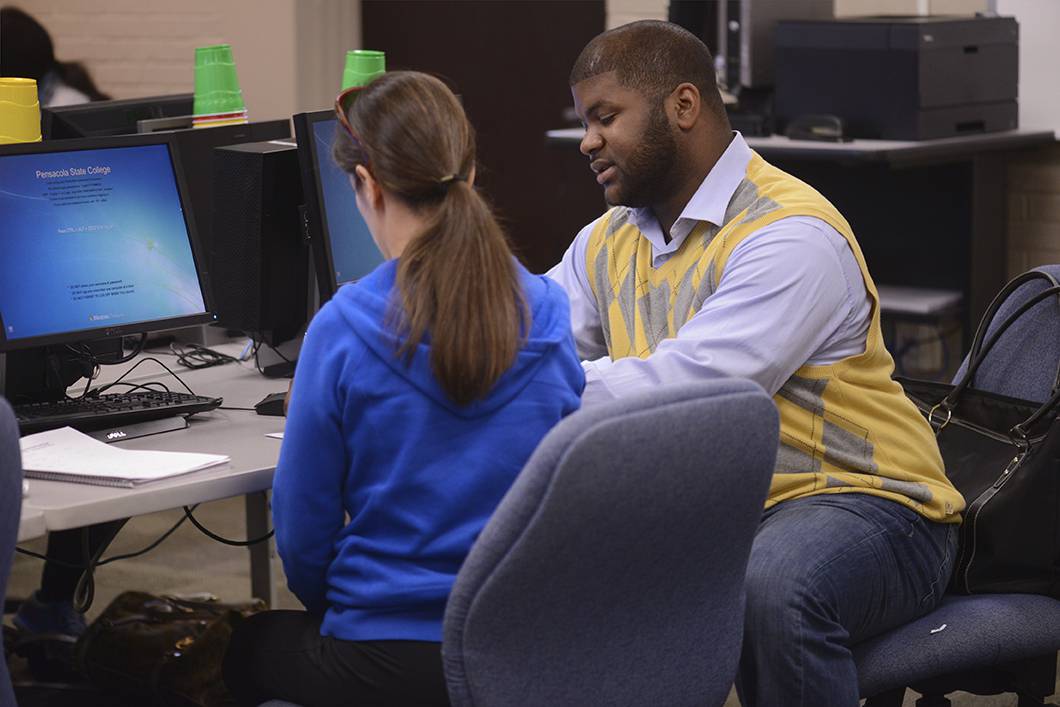
Contact the Pensacola State College Information Technology Department for assistance in planning your program of study.
SEARCH PROGRAMS
INTRODUCTION
The Computer Information Technology program prepares students by giving them a basic understanding of voice and data networks in their foundation courses. Typical job titles include computer repair technician, system administrator, network engineer, network security specialist and telecommunications specialist. By special agreement with the University of West Florida, students with an AS Degree can continue their studies in a Bachelor of Arts Degree program. If a student plans to do so, electives should be chosen carefully with the help of the department head. UWF will also require certain additional general education coursework for transferees holding the AS Degree.
IS THIS FOR YOU
People in this career usually prefer to work indoors and organize things. They like to work with words, numbers, ideas, and things. People in this career are sometimes described as being careful, orderly, and persistent.
BEYOND GRADUATION
Networking is in a constant state of change. Graduates will need to stay current with these changes to remain employable in the field.
Opportunities for continuing the training begun at Pensacola State College are offered by community colleges, universities, and private schools. Most employers recognize the need for continuing education by the technical staff and will encourage these employees to continue their technical training by means of paid tuition and/or release time.
RELATED CAREER OPPORTUNITIES
Primary Employers
Graduates from the Computer Information Technology program are employed by industries which have local area computer networks: manufacturing, retail and wholesale businesses, financial and educational institutions, and insurance and governmental systems.
Occupations
Network/User Support Technicians
Help computer users purchase, install, operate, and maintain microcomputers, Local Area Networks (LAN), and communications equipment. These personnel must have detailed knowledge of microcomputer hardware and software and a working knowledge of networking and communications
Network Administrators
Develop, test, and coordinate changes to computer systems applying knowledge of database management systems. They may plan, coordinate, and implement security measures to safeguard computer databases.
Telecommunications Equipment Mechanics, Installers, and Repairers
Install and maintain the array of increasingly complicated and sophisticated communications equipment. They set up, rearrange, and remove switching and dialing equipment. They may also solve network-related problems and program equipment to provide special features.
Telecommunications Specialists
Design voice and data communications systems, helping to integrate communications equipment with computer networks. They work closely with clients to design systems to meet their needs. These systems may include laser and fiber optic technology
Other Occupations
- Field Service Technician
- Network Control Operator
- Network Security Specialist
- Help Desk Specialist
- Network Engineer
- Telecommunications
- Engineering Technician

 PirateQ
PirateQ 